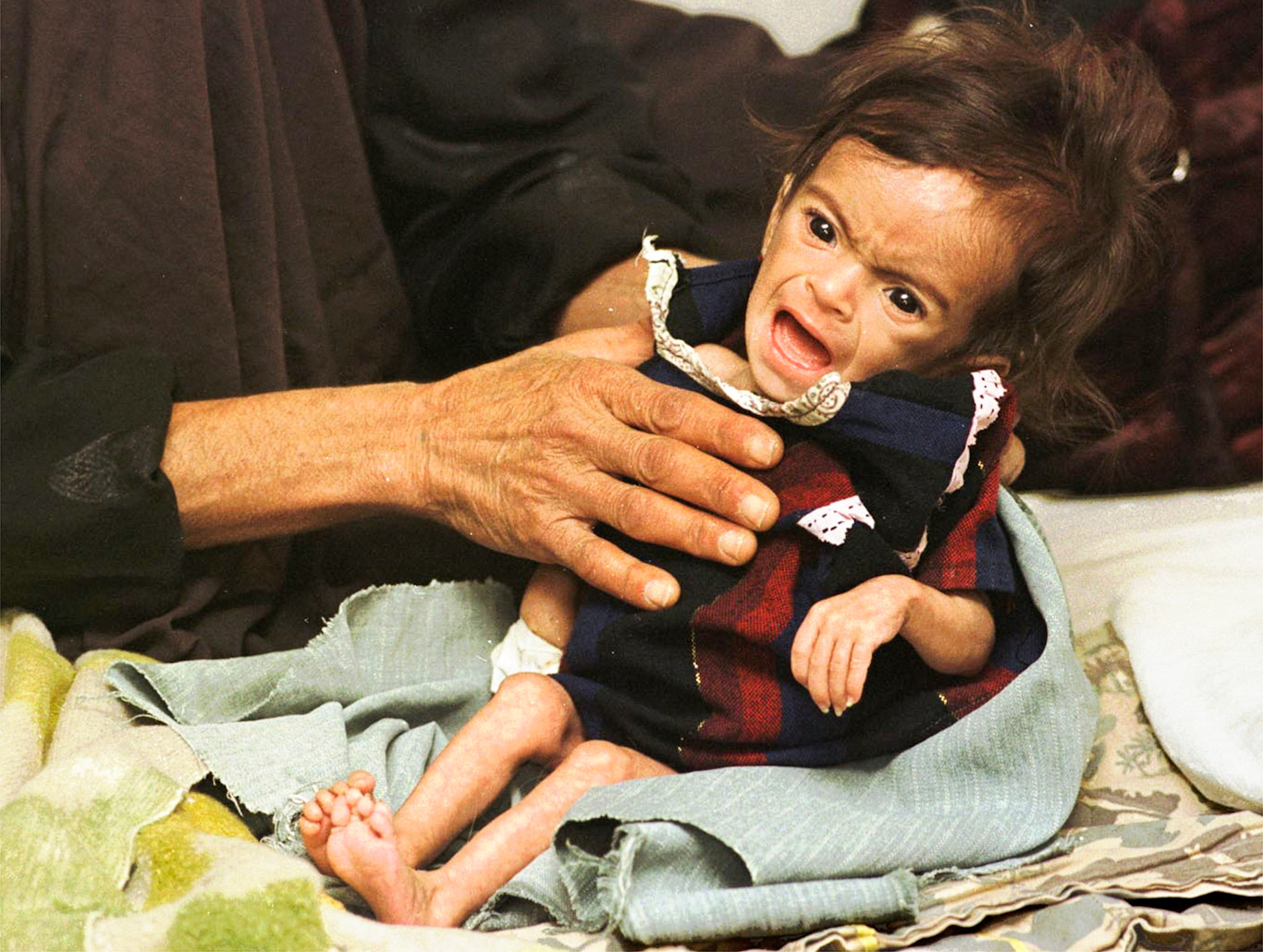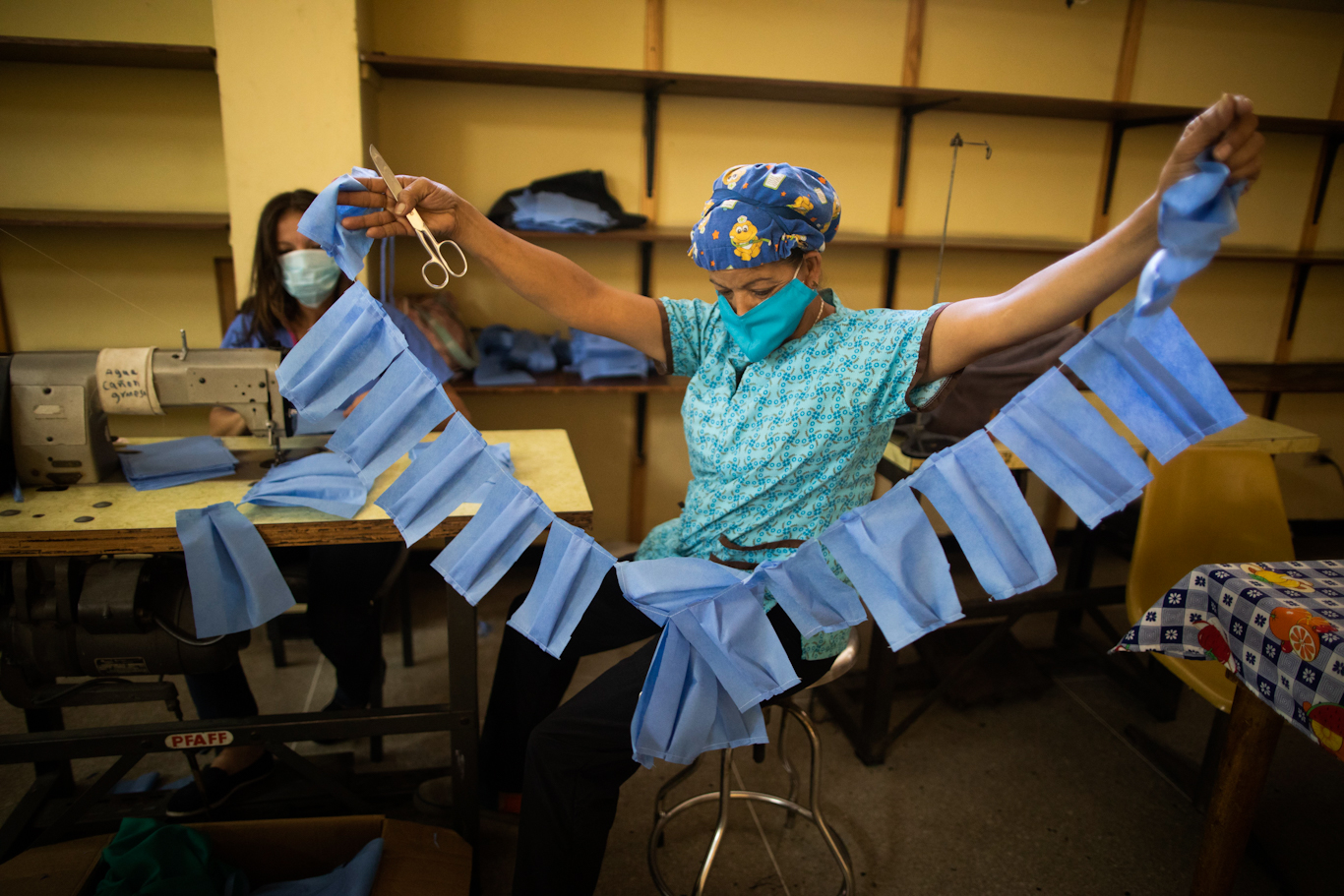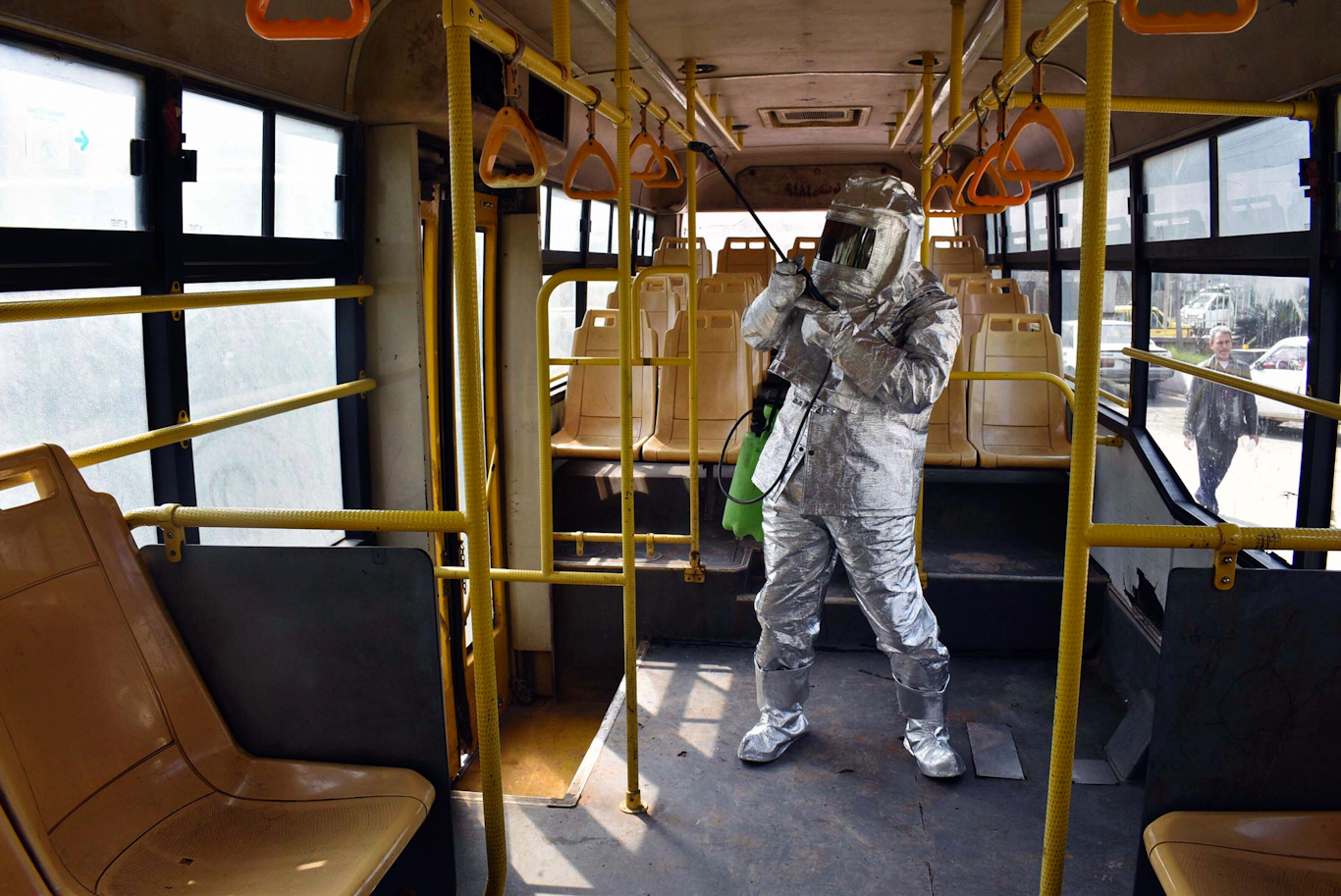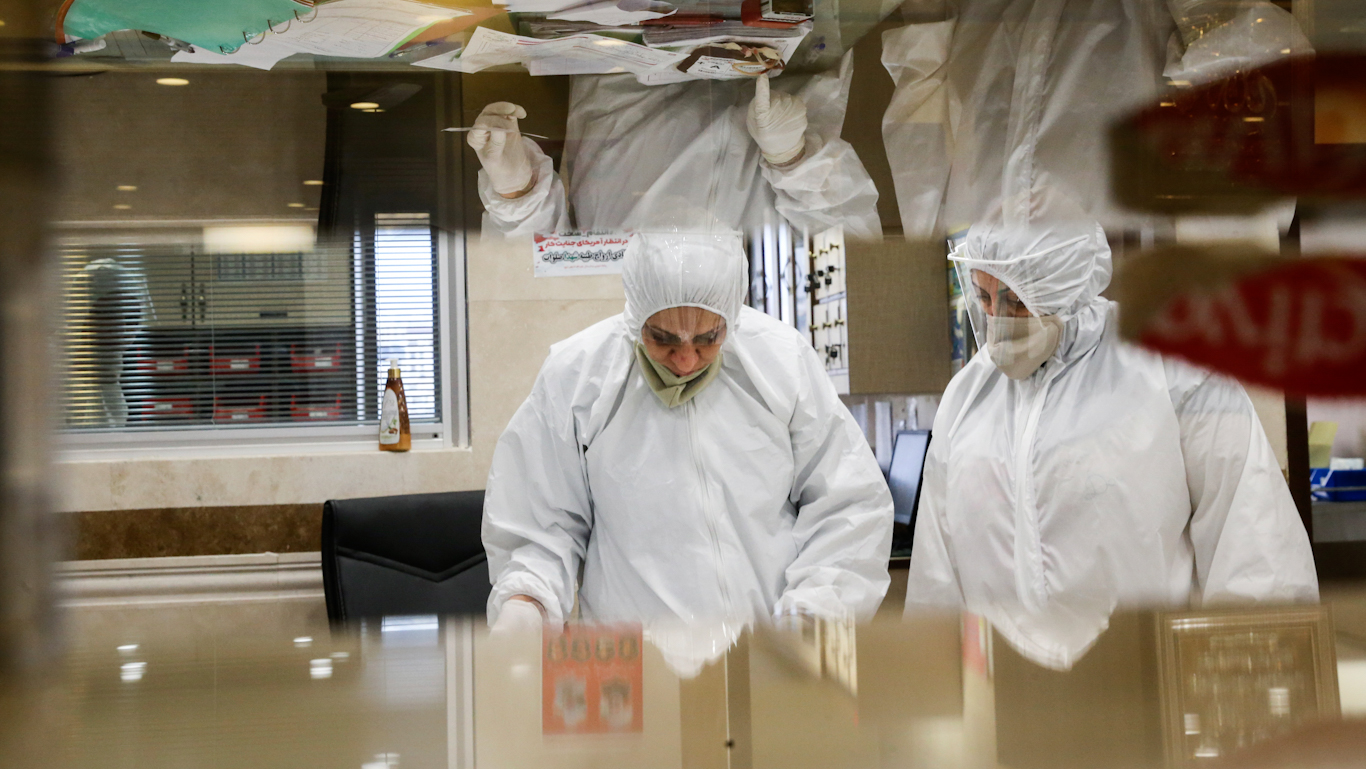As Western nations descend into a panic over the coronavirus pandemic, Americans are getting a taste of what it’s like for the millions who have been living under U.S. sanctions and warfare.
Iran has been hit hard by the pandemic with 850 confirmed deaths to date. It’s Rial lost 80 percent of its value and food costs have nearly doubled. With the country scrambling to handle the crisis, nations are refusing to sell the Islamic Republic medical supplies for fear of running afoul of U.S. sanctions.
Iran’s foreign minister Javad Zarif has decried the sanctions numerous times on Twitter.
Unlawful US sanctions drained Iran's economic resources, impairing ability to fight #COVID19.
They literally kill innocents
It is immoral to observe them: doing so has never saved anyone from future US wrath
Join the growing global campaign to disregard US sanctions on Iran.
— Javad Zarif (@JZarif) March 17, 2020
On March 14, Zarif tweeted that “Viruses recognise no politics or geography. Nor should we,” adding that U.S. sanctions against Iran had been seriously hampering the country’s efforts to combat COVID-19.
Last week, Both Iranian President Hassan Rouhani and Zarif penned letters to their foreign counterparts and to the UN Secretary General Antonio Guterres demanding that U.S. sanctions be lifted so that Iran could deal more effectively with a global crisis of seemingly unprecedented proportions.
In letter to UN SG @antonioguterres, I urge the world body—and member states—to disregard inhuman US sanctions on my country. And insist that they be lifted.
As the #COVID19 ravages Iran, we should recognize that viruses don't discriminate. To fight them, neither should humans. pic.twitter.com/YDqw9fKzHl
— Javad Zarif (@JZarif) March 13, 2020
In one of his tweets, Zarif expressed his frustration in the strongest terms, “it is immoral to let a bully (US) kill innocents,” he said. And this is precisely what U.S. sanctions are doing. The U.S. and its EU and UK allies have systematically imposed sanctions upon target nations with the knowledge that these measures collectively punish the ordinary people in those nations. Sanctions are an integral component in modern hybrid war strategies, designed to weaken a nation chosen for destabilization.
.
Sanctions: a “small price to pay”
Ostensibly, sanctions are a means of bringing a recalcitrant government into line with U.S. foreign policy agendas. The reality is that they hit the weakest sectors of the population, depriving them of essential infrastructure and healthcare. This was witnessed in Iraq where Madeleine Albright notoriously described the deaths of 500,000 children as a “price” that was “worth it” to fulfill U.S. policy objectives in the region.
In that same country, the United States deliberately targeted almost every water treatment plant, seven out of eight dams were destroyed and then sanctions targeted supplies of water purification components, even chlorine. As a result, the potential for waterborne illnesses was increased exponentially. Combined with wartime poor sanitation, these orchestrated conditions would expose hundreds of thousands of Iraqis to U.S. engineered disease and misery. All this to provide post-war leverage for the U.S. and its allies.

In an article originally published in 2001, Professor Thomas Nagy describes the discovery of Defence Intelligence Agency documents (DIA) which proved beyond any shadow of a doubt that the U.S. “used sanctions against Iraq to degrade the country’s water supply after the Gulf War.” The primary document, “Iraq Water Treatment Vulnerabilities,” is dated January 22, 1991. It spells out how sanctions would prevent Iraq from supplying clean water to its citizens.
“Iraq depends on importing specialized equipment and some chemicals to purify its water supply, most of which is heavily mineralized and frequently brackish to saline,” the document states. “With no domestic sources of both water treatment replacement parts and some essential chemicals, Iraq will continue attempts to circumvent United Nations Sanctions to import these vital commodities. Failing to secure supplies will result in a shortage of pure drinking water for much of the population. This could lead to increased incidences, if not epidemics, of disease.”
Today, very similar conditions are being seen in Yemen, where the quagmire of a Saudi-led war is increasing the risk of disease exacerbated by a UN-endorsed land, air and sea blockade. The Saudi coalition could not operate effectively without military assistance from the U.S., UK, and EU and it is systematically destroying water, sewage and desalination plants across Yemen, leaving tens of thousands without clean water and with inadequate sanitation facilities.
In March 2020, the World Health Organisation (WHO) recorded a horrifying 2,263,304 cholera cases in Yemen and 3,767 related deaths since 2017 when the epidemic took hold in the battered and besieged nation. Without the sanctions and the Saudi blockade, this disease would be both preventable and curable.
Internal documents from the Sana’a-based Ministry of Health confirm that while the Sana’a government is responding to COVID-19 by banning all flights and closing its borders, the Saudi-backed regime of fugitive President Abdul Mansour Hadi has actually increased the number of flights into Yemen, especially from Cairo, which is predicted to develop into a major Coronavirus-affected location. The Health Ministry in Sana’a has accused the Hadi administration of gross negligence regarding national security and has warned of catastrophic consequences if the pandemic arrives in Yemen as a result of this irresponsibility.
The actions of the Saudi Coalition, which effectively control the Hadi regime’s policies, risk the introduction of a more potent pandemic into the midst of a country already battling a five-year humanitarian blockade and a disproportionate, unjustified war of aggression that has seen the country dealing with a host of devastating epidemics. The flaunting of safety measures by the Saudi Coalition, endorsed by the UK and US, must be effectively considered as biological warfare and a crime against humanity.
Much like the Saudi-led Coalition aggression against Yemen, the 2011 NATO bombing campaign in Libya was intended to destroy that country’s standard of living. According to journalist and academic, Professor Michel Chossudovsky, “the objective of the NATO bombings from the outset was to destroy the country’s standard of living, its health infrastructure, its schools and hospitals, its water distribution system.” In Libya too, the combination of sanctions and devastation of infrastructure would ensure an unprecedented rise in epidemics among weakened and immune-system-deficient wartime populations.
Wartime carpetbaggers profit from postwar misery
Corporate carpetbaggers historically arrive in the wake of the destruction they have manufactured with rebuilding campaigns and projects almost invariably financed by the International Monetary Fund (IMF) and World Bank. “War is good for business” for predator nations and disease is profitable for the purveyors of “humanitarian” military intervention.
With the explosion of COVID-19, Iran had no other option but to approach the IMF for funding to fight the coronavirus. The head of Iran’s Central Bank, Abdolnaser Hemmati, confirmed that a request has gone to the IMF for $5 billion. It remains to be seen how the IMF, of which the United States is the largest shareholder, will respond to the request and if it will honor its commitment to help all countries to overcome the pandemic, regardless of historic enmity or ideological differences. The decision ultimately lies with the United States, as it holds veto power over the IMF.
What is apparent is that the combination of the so-called maximum pressure campaign being waged by the United States and the coronavirus have brought about unexpected dividends for those levying the sanctions, and those dividends will be paid out in potential IMF loans to Iran. Interest on IMF debts inevitably leads to greater pressure on education, healthcare, and other social services when limited funds have to be diverted to pay off the loan. Meanwhile, those sectors will still be negatively impacted by sanctions.
Will the U.S. exploit global desperation or will it discover a hidden well of humanity hitherto concealed? History tells us that America’s long term predatory reflex will be the dominant feature of its response to cries for help from nations it has historically perceived as prey or competition to U.S. unipolar supremacy.
Beirut-based political science professor Amal Saad summed it up in a single succinct tweet:
The Corona pandemic's potentially devastating impact on every aspect of human existence illustrates how superfluous the concept of *national security* is. There can be no national security without human security–protecting people from disease, poverty, environmental degradation
— Amal Saad (@amalsaad_lb) March 16, 2020
Iran and Yemen are not the only countries devastatingly affected by U.S. sanctions that threaten their ability to cope with a pandemic as ferocious as COVID-19. Venezuela and Syria are also besieged and weakened by what is effectively economic terrorism.
As MintPress News recently reported, the United States’ hybrid war on Venezuela has de facto intensified since the global outbreak of COVID-19. According to former United Nations special rapporteur Alfred de Zayas, U.S sanctions have already been responsible for the death of over 100,000 Venezuelans. As elsewhere, the effects of sanctions are most damaging on the health sector, which directly impacts Venezuela’s ability to deal with a pandemic on the scale of COVID-19.
Leonardo Flores, a Latin America policy expert says that if it “were it not for the solidarity of China and Cuba, which sent testing kits and medicine, Venezuela would be woefully ill-equipped to handle the coronavirus. The sanctions are worsening an already dangerous situation, forcing Venezuela to spend three times as much for testing kits as non-sanctioned countries.”
Venezuela was the first country affected by COVID-19 to seek a loan from the IMF. The request for $ 5bn was rejected by the IMF “claiming a lack of certainty over the legitimacy of President Nicolas Maduro’s government”. A “lack of certainty” that has been generated largely by Washington and their aligned media.

The collective punishment meted out by U.S. sanctions inflicts damage on entire populations in prey nations, under the 1949 Geneva Convention, this is a war crime. To maintain such punitive economic pressures during a time of global health insecurity must be a supreme crime against humanity as defined by the United Nations International Law Commission in 1947. Yet we see no chink in the U.S. armor, no response to demands for humanity from peoples already decimated and ravaged by U.S. neo-colonialist policies.
The United States leaves target nations with no other option but to break the blockade by any means possible and to find ways to circumnavigate the draconian restrictions imposed upon them by successive U.S. administrations. The WHO, despite its own apparent funding issues, has been instrumental in providing essential medical equipment and testing kits to Venezuela and Iran and has heaped praise upon Iran’s handling of the COVID-19 crisis and in particular the rapid, dedicated response of health workers in the city of Qom, south of Tehran.
Other non-aligned nations such as China and Cuba have been responding proactively to the world health crisis, despite China having just emerged from an intense period of combat against the virulent disease themselves.
Cuba allowed the docking of a British cruise ship after five passengers tested positive for COVID-19. The MS Braemar, carrying six hundred passengers, the majority of whom are British, had been stranded at sea for two days while trying to find a country that would permit docking. Cuba was the only nation to respond positively and the Cuban Ministry of Foreign Affairs said:
“These are times of solidarity, of understanding health as a human right, of reinforcing international cooperation to face our common challenges, values that are inherent in the humanistic practice of the Revolution and of our people”
In Syria, a perfect storm is brewing
There are no confirmed cases of COVID-19 yet in Syria. Syria’s health sector has been severely affected and decimated by a 9-year proxy military campaign to topple the elected and popular government headed up by President Bashar Al Assad. Aside from financing and arming extremist and terrorist groups, among them al Qaeda and ISIS, the U.S.-led intervention has turned the economic screws on the Syrian people across all sectors.
Syria’s overburdened health sector trying to rebuild in liberated areas and to recover its equilibrium after almost a decade of war and terrorist occupation is going to be hard-pressed to respond adequately to a pandemic as rapacious as COVID-19. The United States and allies are well aware of this and despite all pretensions of caring about the welfare of the Syrian people, we see no move by any of the countries involved to ease the sanctions even temporarily. This, combined with the military campaign in Idlib, north-west Syria, the inevitably high numbers of displaced civilians and the looming threat of COVID-19, has the potential to create the “perfect storm” in Syria unless western countries respond humanely to the situation.
Bear in mind, these sanctions, imposed by the United States, UK and European Union, are “the most complicated and far-reaching sanction regimes ever imposed” according to UN special rapporteur, Idriss Jazairy. The fact that the Syrian state has not collapsed is a testament to the unity of the people behind their government and their resistance in the face of U.S. efforts to destabilize the region.
The Syrian Health Ministry is responding efficiently to the crisis, working closely with the WHO and despite nine years of war, the University Medical Faculties and public hospitals across liberated Syria are still operating fully staffed and offering free health services. Despite these measures, the threat of COVID-19 entering Syria must be taken very seriously.

The neighboring countries of Lebanon, Turkey, Palestine and Jordan have all reported cases. Syria’s borders are not secure, particularly with Turkey where inbound and outbound foreign mercenaries and refugees have transited almost without restriction for nine years. Despite all measures taken by the Syrian government and Health Ministry, which include some border closure and controls, the risk remains perilously high.
What does COVID-19 reveal about the world we live in?
While the United States, the EU and UK populations respond with panic to the COVID-19 pandemic that is sweeping their nations, countries like Yemen and Syria who have been dealing with humanitarian siege warfare, economic sanctions and full-scale military war for extended periods of time, are responding with a more sanguine approach.
These countries know what it means to survive unimaginable hardship and COVID-19 is another test of their resolve and steadfastness, one they will not fail.
In 2019, a number of countries met at the United Nations in New York to discuss the United States’ unilateral sanctions that violate the UN Charter. This was an attempt by the non-aligned resistance movement to create a formal group to challenge and combat these economic pressures and imperialist doctrine on a global scale. It is indicative of the emergence and strengthening of a global resistance movement against neo-colonial expansion and the solidarity of nations resisting the predation by the U.S.
COVID-19 is a test for humanity, an unprecedented catalyst for real, organic transformation. Will we allow our governments to imprint upon us an even more profound level of isolationism driven by fear and panic, enforced by martial law, or will we realize that the only way humanity can survive, now and in the future, is by uniting and responding to the crisis in solidarity with all oppressed nations in this world?
The U.S. is taking action to sanction Assad regime Lt. General Ayoub for the violence perpetuated against the people of northern #Syria. Such violence that impacts civilians, humanitarian workers, and hospitals must not be tolerated. We stand on the side of the Syrian people.
— Secretary Pompeo (@SecPompeo) March 17, 2020
The litmus test is how governments in the West respond to what is a global health crisis. Will they genuinely put human beings first and lift the punitive sanctions that make it almost impossible for many countries to combat Coronavirus or will they exploit the situation in a last-ditch attempt to bring these nations to their knees. A recent tweet from U.S. Secretary of State Mike Pompeo suggests that the U.S. will double down on its hybrid war against Syria while claiming to “stand on the side of the Syrian people.”
The United States should be aware that their humanitarian fig-leaf no longer exists, more and more people have seen through the charade. With a resistance axis in ascendance, the U.S. is in real danger of losing its full-spectrum dominance in an increasingly multi-polar world where nations demonized by the United States are stepping up to the plate to assist countries affected by the pandemic. Will Coronavirus be the final nail in the empire’s coffin? Only time will tell, but one thing is for sure, the U.S. is not looking good and non-aligned nations are showing the world what the world should really look like during a global crisis.
Feature photo | Medics wearing protective gear work in a ward dedicated for people infected with the new coronavirus, at Baqiyatallah Al’Azam Hospital in Tehran, Iran, March 7, 2020. Mohammad Hasan Zarifmanesh | Tasnim via AP
Vanessa Beeley is an independent journalist and photographer who has worked extensively in the Middle East – on the ground in Syria, Egypt, Iraq and Palestine, while also covering the conflict in Yemen since 2015.


